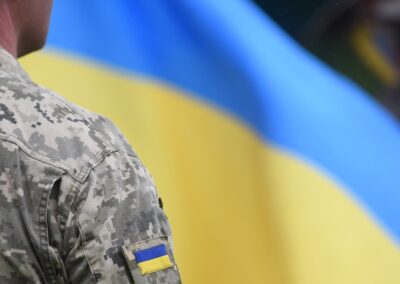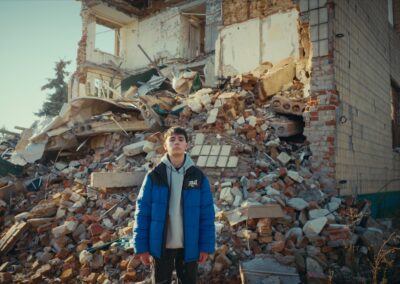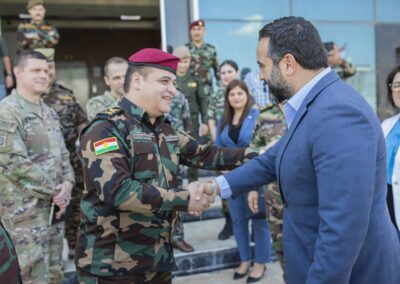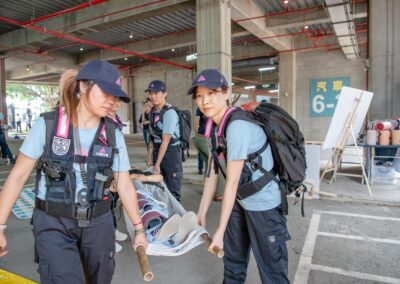From Iraq to Syria Part II
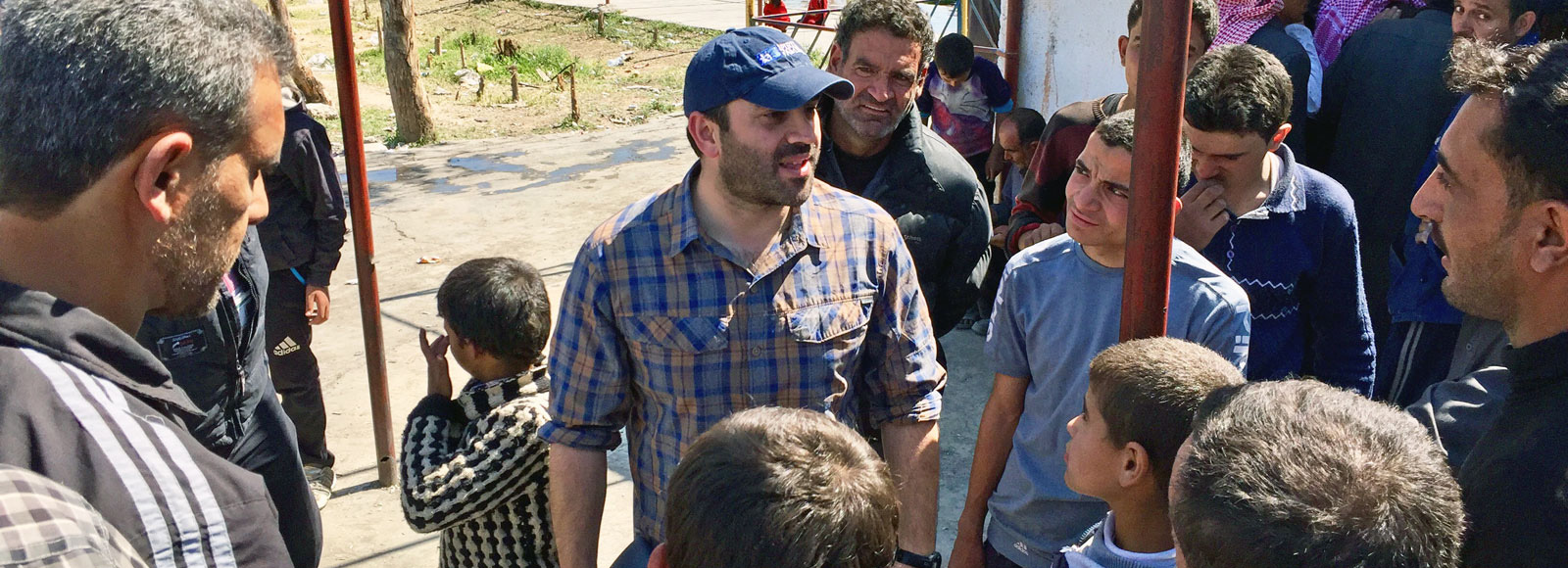
The second part of my recent trip to Syria had a more southerly focus. The US Army civil affairs team and I toured Ayn Isaa, a ghost town roughly 40 miles north of Raqqah, the capital of the Islamic State. Given the prevailing atmosphere of religious discord and acrimony across the Middle East, the name, meaning “Well of Jesus,” struck me as somewhat ironic.
Ain Isaa is the kind of dull place that one habitually passes when traveling in the Levant: Cement houses, often unfinished and encircled by walls, are randomly clustered into neighborhoods. Piles of trash and dirt mix with cement blocks, auto parts, and rubble in empty lots. Plastic bags cast skyward by the wind flutter with an uncanny bird-like appearance. Herds of sheep graze contentedly on this odd menu of waste and ruin. Men—and it’s always mostly men—lounge outside homes on makeshift seating arrangements, killing time with board games and idle chatter.
 (Left) Ayn Isaa is mostly abandoned but slowly coming back to life. (Right) Two children enjoying being children near their home in Ayn Issa.
(Left) Ayn Isaa is mostly abandoned but slowly coming back to life. (Right) Two children enjoying being children near their home in Ayn Issa.
Since its liberation from ISIS in 2015, the people of Ayn Isaa have been slow to return home due to security and political concerns. Unexploded bombs and ordinances are still a risk to lives and limbs. Amongst the repertoire of cruel tricks preferred by the fighters of the Islamic State, also known as ISIS, is a penchant for planting booby traps and explosives designed to maim and kill civilians long after the terrorists have fled. Few people walked the empty streets. Storefronts along the main street were shuttered; graffiti, peeling paint, and bullet holes along their facades gave the atmosphere a dystopian quality.
I wondered if Ayn Isaa would ever be fully populated again. Given the interconnected nature of the modern world and the ease of movement of people from one place to another, I suspected that many former residents of Ayn Isaa were now starting over in Sweden, Germany, Canada, or the US. The confluence of technology, international law, and the protracted nature of civil wars fueled by external actors can combine to fundamentally alter the demographics of a country. How will the “Well of Jesus” look in 50 years, I wondered.
Our next stop was the internally displaced people (IDP) camp on the edge of town. IDPs are people displaced by conflict who have not crossed an international border—in other words, refugees within their own country. According to UNHCR, over six million Syrians are IDPs today, making them the world’s largest displaced population. The camp I was about to visit housed roughly 3,000 of them.
On the way in, we passed a white truck where three men shared tea in the narrow wedge of shade it created opposite of the scorching sun. They appeared perfectly content in their moment. I walked up and greeted them. Not surprisingly, they invited me for tea. Had I not been with my military counterparts, I would have accepted the offer, but there was work to do.
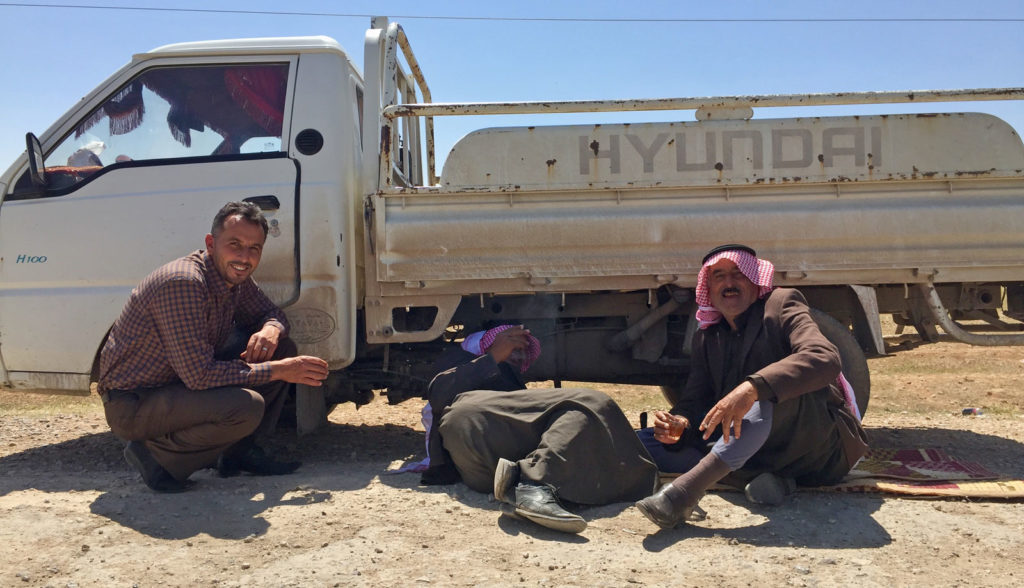
Three Arab men enjoy a cup of tea in a sliver of shade outside the IDP camp near Ayn Issa, Syria.
Not long after we arrived, the camp manager walked up to welcome us. I took the opportunity to ask him a few questions.
“How many people are here?”
“About three thousand but it changes all the time,” he explained. The camp was for transients, people there for just a short time—a matter of days—as they are processed and cleared by security officials. Afterward, they are transferred to more permanent settlements.
Knowing what the answer would be but feeling obliged to, I asked what his needs where. As he responded, I gazed around the barren plot. UNHCR branded tents formed irregular rows. Trash, collected along the fences and ditches. A two-story high dust devil spun furiously around itself as it charted a random course across the camp, catching an unlucky woman in its wake. As if things were not already bad enough for her.
Every few minutes a vehicle pulled up to drop off a group of escapees from areas controlled by the Islamic State. They stumbled out looking resigned and defeated and disoriented, strangers in their own land and a burden unto themselves and others. I rarely feel sympathy for the adults. But for children whose parents brought them into the world to know only war, I found myself caught between the realization that there was nothing I could do for them and the desire to try and do what I could.
I’ve been to numerous camps over the years. Generally, they each have a different feel but share a similar rhythm. As I walked through the camp, I greeted the men who passed me, hoping to spark a dialogue. The women, robed and veiled, ducked in their tents upon seeing me, an unfortunate reminder of how deeply conservative Syrian society is. I took a circular path around the camp and finished near the entrance where a group of men huddled in front the security office.

(Left) Displaced families arrive at the camp, looking fatigued and defeated. (Right) Walking around the camp and getting to know some of the displaced.
I greeted them, “As-Salaam-Alaikum” (“Peace be upon you”).
“Wa alaykumu as-salam” (“And unto you peace”), they reciprocated in concert.
I then launched into my questions, aiming to learn what I can about the situation. I was also eager to explore the thought process that informed people’s beliefs and shaped their behaviors.
One of the men, sporting a red and blue striped t-shirt, took the lead. He was thoughtful and articulate with a friendly demeanor that was accentuated by a perpetual half-smile. I listened as he described the situation to me but when he tried arguing that Syria’s problems are due to outsiders and politics, I pushed back a bit. How can it be that in every war-torn Middle Eastern country I’ve lived in, deployed to, or traveled through, the fighting is perpetrated by people from another country? At some point, that logic becomes algebraically impossible. Moreover, how can it be that religion has no role in the conflict? My new friend then made a good case against nefarious outsiders who add fuel to the fire in Syria.
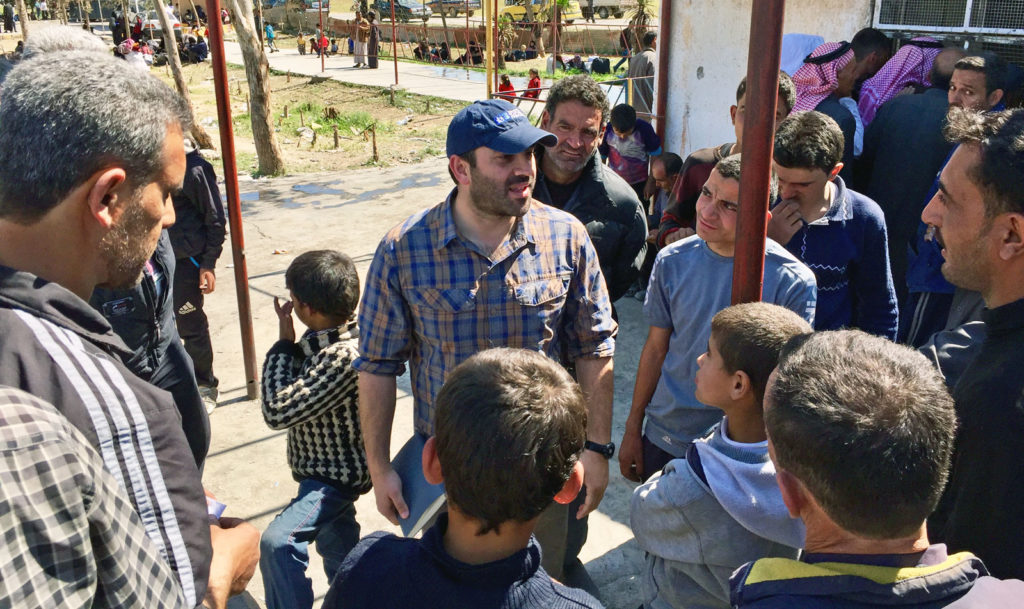
A lively conversation with a group of displaced Syrians.
Back and forth we went until it was time to go. We exchanged well wishes in hearty portions and parted ways. Walking back to the truck, I thought about the contradictions that abound in the Middle East: People picking up guns while longing for peace, living in the misery of the present while yearning for a perfect past, boasting about being civilized while waging war in the cruelest conceivable way. Can an enduring peace ever be realized here? I was not sure. Still, I knew that despite the cruelty of circumstance, the good people of the region always seem to carry on. Walking out of the camp, I was reminded of my favorite stanza from the poem Invictus by William Ernest Henley:
In the fell clutch of circumstance
I have not winced nor cried aloud.
Under the bludgeonings of chance
My head is bloody, but unbowed.
Zack Bazzi
Project Manager


